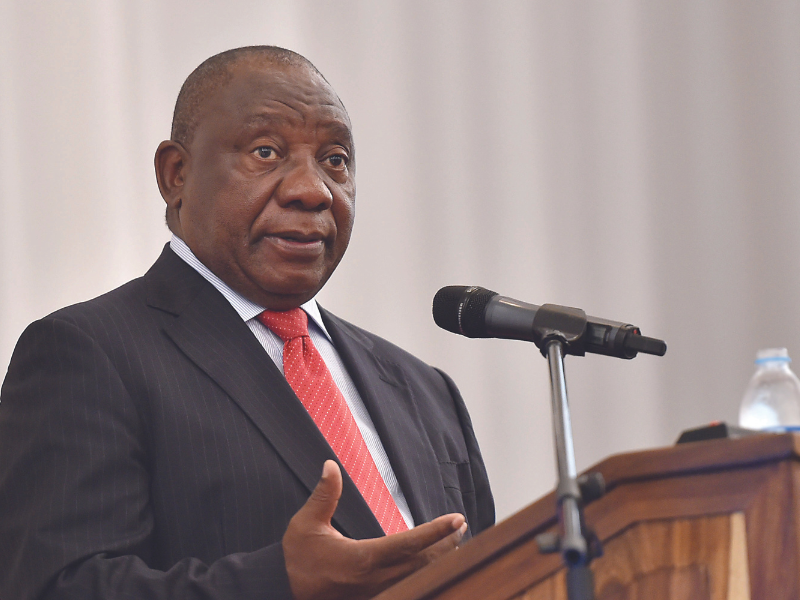
3 minute read
The UN Is Humanity's Best Chance At Peace and Development
Addressing The Nation - Letter From The President
By Fiona Wakelin
In his letter to the nation, penned on 22 September, His Excellency President Cyril Ramaphosa focussed on the United Nations, as it is during this week that South Africa will be attending the 80th session of the United Nations General Assembly in New York.
It has been eight decades since the UN Charter committed countries of the world to work together to advance peace, promote development and uphold the rules of international justice and protect human rights.
His Excellency notes that we are in a fragile place globally - according to the UN’s own data, the number of global conflicts are at the highest levels since the end of the Second World War. Nearly half of the world’s 1.1 billion population who live in acute poverty are in countries beset by violent conflict. This is compounded by health and pandemic response and preparedness coming under serious threat following the withdrawal of global health financing and aid. Another global threat is climate change and global warming.
“As the UN General Assembly convenes this week under the theme “Accelerating Global Progress Through Intergenerational Collaboration” the stakes have never been higher. The UN is struggling to meet its mandate as contained in the UN Charter.
It continues to be hampered by competing national interests that impede collective action. There is a lack of political will among member states to address many challenges, including the chronic underfunding of peacekeeping operations. "
“But by far the most serious hindrance to the UN fulfilling its mandate is the structure and operation of the UN Security Council. Despite changes in global power relations over more than half a century, the decision making architecture that has enabled the five permanent members to have veto powers has not changed since the end of the Second World War. These five permanent members effectively make decisions on behalf of more than 85% of the world’s population living in countries of the Global South. They continue to use their veto powers to effectively paralyse collective action and prevent timely responses to crises, even in the face of clear violations of international law,” H.E. Ramaphosa
President Ramaphosa is clear in his letter, that at a time of widespread poverty and underdevelopment, when human rights are under threat worldwide and where geopolitical tensions are creating instability across the globe, advancing multilateralism is more critical than ever.
“The message South Africa takes to this year’s General Assembly is that if the organisation is to remain relevant and if the global, rules-based system is to endure, the UN must demonstrate in both word and deed that multilateralism is alive. Despite its many challenges, the UN remains humanity’s best chance at peace, security and sustainable development for all,” – President Ramaphosa.

